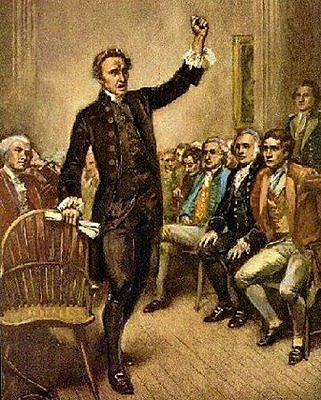There may be no area of public policy more dominated by platitudes and pie-in-the-sky pronouncements than education. Case in point: the oft-repeated declaration that we must put aside our differences about what kids should be taught — whole language or phonics, old math or new math, creationism or evolution — so that we can just get down to teaching.
USA Today is currently offering an editorial providing just such trenchant advice. Using the social studies brouhaha in Texas as their jumping off point, the editorialists lament standards that are skewed to either the left or right in states around the country:
[T]his sort of agenda-driven revisionism isn’t narrow and isn’t confined to Texas. Nearly half the states have a centralized curriculum system, often dominated by a politically elected or appointed board.
Kansas has been tied in knots for a decade over teaching evolution. At the other end of the politically correct spectrum, California regulates the portrayal of genders, minority groups, the elderly and the disabled. According to the Los Angeles Times, publishers have even been discouraged from labeling the residents of poor countries as, well, poor. Negative stereotyping, you know.
Members of the Texas board and their backers say they’re just trying to restore balance to an academic system they view as skewed to the left. But that misses the point. Standards should be set by professionals in their fields. They should not be a vehicle for scoring points in the culture wars.…
[W]hy should students in Texas, or anywhere, have their education warped by political and ideological gamesmanship?
Sayeth USA Today, ideologues and politicians, with their nettlesome opinions, should just butt out of curriculum setting and let the “professionals” set the standards.
There are numerous major problems with this.
First, what if the professionals are not a monolithic group and there’s disagreement among them? Who among them should dictate the curriculum? The vaunted “consensus?” But what if the consensus is wrong? It has happened, you know.
Then there’s this: What if the “professionals” are every bit as political and ideological as everyone else? Hard to believe, but there is actually a mammoth left-wing bias among academics in many fields, and those are often the “professionals” we’re supposed to let unilaterally decide what our kids will learn.
Wait. No one said it had to be a unilateral decision. Except if it isn’t, you are right back to gamesmanship square-one. Why? Because if non-professionals get a say, all of those diverse Americans with their infuriatingly varied opinions, values, and educational desires will be right back to having input into what the system of schools they all must support will teach! And many of those people — shockingly! — will go right back to fighting to get the schools to teach what they want their kids to learn, not what the liberal, or conservative, or atheist, or whatever down the street wants their own children taught.
Frankly, this is not hard to figure out, and once one thinks it through it becomes obvious that just saying that things should be different, without changing the one-size-must-fit-all system, will never work. Indeed, short of eliminating all diversity in the nation, or forcing all schools under the boot of a dictator, only one system of education can end the fighting: universal school choice, which lets every family choose what they want their kids taught as long as there’s an educator willing to teach it. Nothing is forced, so no one must fight.
Ultimately, this is what it comes down to: Either give us liberty, or give us “gamesmanship”!

